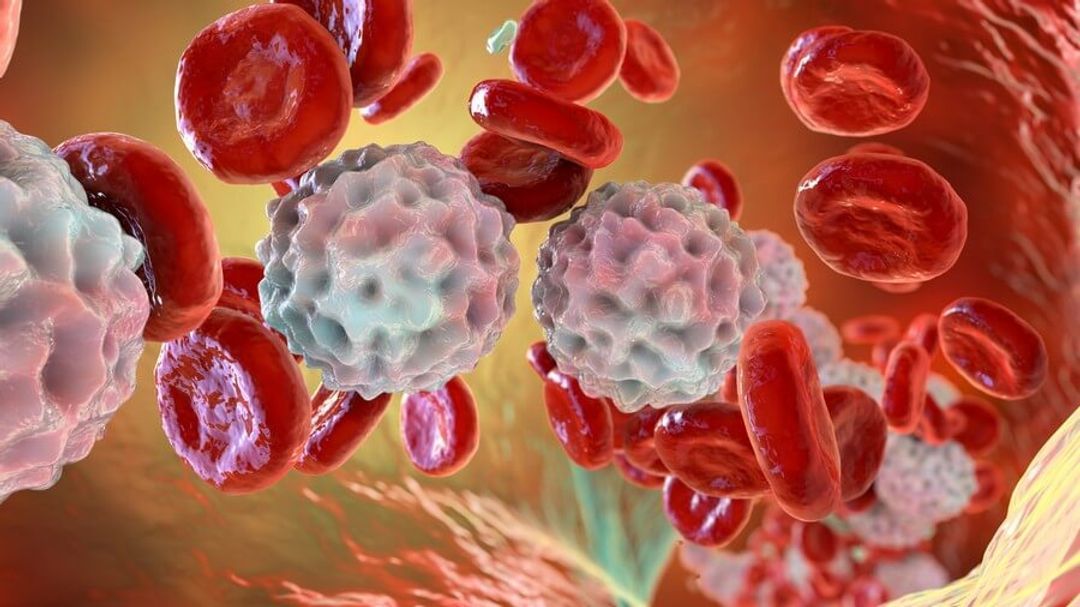Are Eggs Inflammatory? Here’s What You May Not Know
Are you curious about the link between eggs and inflammation? Find out if eggs are an inflammatory or anti-inflammatory food. Learn more!
Introduction
Eggs have long been an integral part of the culinary world, adorning breakfast plates, lending richness to desserts, and providing essential nutrients to millions of people across the globe.
However, despite their widespread consumption and culinary versatility, eggs are often at the centre of heated debates among nutritionists and health-conscious consumers.
One such contentious issue is the association between eggs and chronic inflammation, which raises questions about the health implications of consuming these protein-packed ovals.
Inflammation is a double-edged sword in the human body. While it is a vital response to injury, infection, or foreign invaders, chronic inflammation can pave the way for various health problems, including heart disease, diabetes, and certain cancers. This makes understanding the role of diet in modulating inflammation crucial for making informed choices to promote overall health and well-being.
In this article, we embark on an investigative journey to peel back the layers of this nutritional enigma and explore the complex relationship between eggs and inflammation.
We will:
Explore the scientific literature to examine the potential inflammatory and anti-inflammatory properties of eggs
Weigh the health benefits they offer
Address concerns about egg consumption for specific populations
Offer guidance on choosing the best type of eggs to maximise their potential health benefits while minimising risks
Let's crack this egg wide open and uncover the truth about whether eggs cause inflammation.
Are Eggs an Inflammatory Food?
The connection between eggs and inflammation is not straightforward. Research on this topic has produced conflicting results, with some studies suggesting that eggs can cause inflammation while others find no such link.
For instance, a study by Andersen et al. found that consuming high amounts of eggs (3 or more per day) increased inflammatory markers in overweight individuals.
 Conversely, a study by Thomas et al. discovered that consuming eggs for breakfast did not increase inflammatory markers in healthy adults.
Conversely, a study by Thomas et al. discovered that consuming eggs for breakfast did not increase inflammatory markers in healthy adults.
One reason for these discrepancies could be the diverse nutritional composition of eggs. Eggs contain various nutrients, some of which may have pro-inflammatory effects, while others may have anti-inflammatory properties.
To understand the relationship between eggs and inflammation, it is essential to examine the specific components of eggs that could be responsible for these effects.
Why Do Eggs Cause Inflammation?
There are a few components in eggs that may contribute to inflammation, including:
Arachidonic Acid
This omega-6 fatty acid is found in egg yolks and has been linked to increased inflammation. High levels of arachidonic acid can lead to the production of pro-inflammatory eicosanoids, which are compounds that can contribute to inflammation in the body.
 Choline
Choline
Eggs are rich in choline, a nutrient required for various bodily functions. However, when choline is metabolised by gut bacteria, it can produce trimethylamine N-oxide (TMAO), a compound associated with inflammation and an increased risk of cardiovascular disease.
Saturated Fat
Egg yolks also contain saturated fat, which has been associated with increased inflammation in some studies. However, this relationship is still debated, and more research is needed to establish a definitive link between saturated fat and inflammation.
Are Eggs Anti-Inflammatory?
In contrast to the potential pro-inflammatory components of eggs, they also contain various nutrients that may have anti-inflammatory effects. These include:
 Omega-3 Fatty Acids
Omega-3 Fatty Acids
Some eggs, specifically those from hens fed an omega-3 enriched diet, contain higher levels of omega-3 fatty acids. Omega-3 fatty acids are known for their anti-inflammatory properties and may help counterbalance the pro-inflammatory effects of arachidonic acid.
Vitamin D
Eggs are a natural source of vitamin D, which has been shown to have anti-inflammatory effects. Adequate levels of vitamin D may help reduce inflammation and support immune function.
Antioxidants
Eggs contain antioxidants like lutein and zeaxanthin, which can help protect the body against oxidative stress and inflammation.
Can You Eat Eggs On An Anti-Inflammatory Diet?
Eggs are a highly nutritious food that can provide various anti-inflammatory benefits when consumed as part of a healthy, balanced diet. These benefits include:
High-Quality Protein
Eggs are an excellent source of complete protein, containing all nine essential amino acids. Protein is crucial for maintaining muscle mass, repairing tissues, and supporting various bodily functions.
 Brain Health
Brain Health
Choline, found in eggs, is essential for brain function and development. Adequate choline intake is linked to improved memory and cognitive function.
Eye Health
Lutein and zeaxanthin, the antioxidants found in eggs, are known to support eye health and reduce the risk of age-related macular degeneration (AMD) and cataracts.
Heart Health
Although the link between egg consumption and heart disease has been debated, recent research suggests that moderate egg consumption does not significantly increase the risk of cardiovascular disease in healthy individuals.
Who Should Avoid Eggs?
While eggs can be a nutritious part of a balanced diet for most people, certain individuals may need to avoid or limit their consumption due to specific health concerns. These include individuals with the following health conditions:
Egg Allergy
Some people have an allergy to proteins found in eggs, which can cause symptoms ranging from mild (hives and nasal congestion) to severe (anaphylaxis). Those with an egg allergy should avoid eggs and products containing eggs.
Diabetes
Research suggests high egg consumption (more than 7 per week) may be associated with an increased risk of type 2 diabetes. Individuals with diabetes should consult their healthcare provider to determine the appropriate egg consumption level.
 High Cholesterol
High Cholesterol
Although dietary cholesterol found in eggs has a relatively small effect on blood cholesterol levels for most people, some individuals, called "hyper-responders," may experience a more significant increase in blood cholesterol after consuming eggs. Those with high cholesterol or a family history of high cholesterol should discuss their egg consumption with a healthcare provider.
What Type of Eggs to Eat/Avoid?
When choosing eggs, it's essential to consider factors such as the hens' living conditions, their diet, and the use of antibiotics. These factors can influence the nutritional quality of eggs and their potential impact on inflammation.
Omega-3 Enriched Eggs
As mentioned earlier, eggs from hens fed an omega-3 enriched diet contain higher levels of omega-3 fatty acids, which have anti-inflammatory properties. Choosing omega-3-enriched eggs can be a good option to maximise the potential health benefits.
 Organic and Free-Range Eggs
Organic and Free-Range Eggs
Organic and free-range eggs come from hens raised in more humane conditions, without the use of antibiotics or synthetic pesticides in their feed. These eggs may have a better nutritional profile and a lower risk of contamination.
Pasteurised Eggs
For individuals with a weakened immune system, such as pregnant women, older adults, or those with chronic illnesses, consuming pasteurised eggs can help reduce the risk of foodborne illnesses like Salmonella.
Other Food That Causes Inflammation
While eggs have a complex relationship with inflammation, other foods are more consistently linked to increased inflammation in the body. Being aware of these foods can help you make informed decisions about your diet to support overall health and well-being.
Some common inflammatory foods include:
Refined Carbohydrates
Foods made from refined grains, such as white bread, pasta, and pastries, can cause spikes in blood sugar levels, leading to increased inflammation. Opting for whole grains like brown rice, quinoa, and whole wheat can help promote a more balanced blood sugar response.
Added Sugars
Sugary foods, such as sweets, soft drinks, and baked goods, can trigger the release of pro-inflammatory cytokines in the body. Reducing added sugar intake and opting for natural sweeteners like fruit can help curb inflammation.
 Trans Fats
Trans Fats
Partially hydrogenated oils, found in some processed and fried foods, are a primary source of trans fats, which have been shown to increase inflammation and contribute to heart disease. To reduce inflammation, choose healthier fats, like olive oil and avocado.
Processed Meats
Processed meats, such as hot dogs, sausages, and deli meats, are high in saturated fats and preservatives, which can contribute to inflammation. Opt for lean protein sources like poultry, fish, and plant-based options to support a healthy inflammatory response.
Excessive Alcohol Consumption
Drinking alcohol in excess has been associated with increased inflammation, as it can lead to oxidative stress and liver damage. Moderating alcohol intake and staying within the recommended guidelines can help manage inflammation levels.
What Foods Reduce Inflammation?
Certain foods can help you reduce inflammation in your body. Here are some of the most popular examples.
Fruits and Vegetables
Fruits and vegetables contain natural antioxidants and polyphenols, which help guard against inflammation.
The best anti-inflammatory fruits and vegetables are - berries, avocados, broccoli, grapes, peppers and such.
Whole Grains
Whole grains are full of fibre which helps fight inflammation. You can pick oatmeal, brown rice or whole-wheat bread.
Nuts
Almonds, peanuts and walnuts contain a lot of unsaturated fats, as well as vitamins and minerals, making them a good anti-inflammatory food.
Beans
Just like whole grains, beans are high in fibre. They also contain antioxidants that help fight inflammation.
Olive Oil
One of the healthiest fats you can eat is extra virgin olive oil.
It contains monounsaturated fats, making it a staple in the Mediterranean diet, which is often described as one of the best diets for longevity.
Fish
Fatty fish are a great source of protein and long-chain omega-3 fatty acids. The best anti-inflammatory fish are salmon, sardines, anchovies, herring and mackerel.
Herbs and Spices
Herbs and spices aren't just tasty, they can also help treat inflammation. Try adding more turmeric, oregano, cinnamon, black pepper, cayenne and garlic to your diet.
Conclusion
The relationship between eggs and inflammation is not as straightforward as expected. The intricate interplay of various nutritional components within eggs creates a complex landscape that can potentially influence inflammation in both positive and negative ways.
On the one hand, eggs contain elements like saturated fats and TMAO precursors, which have been linked to increased inflammation in certain studies. On the other hand, they also house an array of nutrients with anti-inflammatory properties, such as omega-3 fatty acids, vitamin D, lutein, and zeaxanthin.
This delicate balance means that the overall impact of eggs on inflammation is likely to be nuanced and may depend on individual factors, such as genetics, lifestyle, and overall diet. When selecting eggs, opting for high-quality options like omega-3 enriched, organic, or free-range eggs can help maximise the potential health benefits while minimising risks.
Take Care Of Your Health With GlycanAge
Chronic inflammation results from an overactive immune system that mistakenly attacks healthy cells and tissues within the body, causing injury, reducing the body’s ability to self-repair and regenerate in the long term, and increasing the risk for age-related chronic disease.
A GlycanAge biological age test assesses the state of the immune system to determine the extent of inflammation within the body and accurately identifies biological age (the age of the cells and tissues within the body).
 Knowing your biological age can empower you to make the necessary lifestyle changes to effectively reduce your risk of chronic disease, increase your health span, and delay ageing.
Knowing your biological age can empower you to make the necessary lifestyle changes to effectively reduce your risk of chronic disease, increase your health span, and delay ageing.
All it takes is a finger-prick blood test in the convenience of your home to learn your biological age. Results are available in as little as three weeks of mailing your sample to our lab.
Various packages and price plans are available depending on your budget and health goals. Every test you purchase comes with a complimentary one-to-one session with a health scientist and/or healthcare professional to help you understand your result and receive tailored advice on how to increase your health span and delay the ageing process.
Invest in your health and order your GlycanAge home test kit today. Take our health quiz and learn more about your body's needs.
FAQ
How do you know if you have a lot of inflammation in your body?
Detecting inflammation in your body can be challenging, as the signs and symptoms may vary depending on the underlying cause and the individual's response. However, there are several common indicators of inflammation that you can be aware of:
Chronic pain
Swelling or redness
Fatigue
Low-grade fever
Skin rashes or irritations
Gastrointestinal issues
Unintended weight changes
What is the most common cause of chronic inflammation?
There is no single most common cause of chronic inflammation, as it can stem from various factors. However, some prevalent contributors to chronic inflammation include:
Persistent infections
Autoimmune disorders
Lifestyle factors
Environmental factors
Obesity
Genetics
Age
How to reduce inflammation in the body fast?
While there is no one-size-fits-all solution to reduce inflammation quickly, there are several strategies you can implement to help alleviate inflammation in your body, depending on the cause of inflammation and individual factors. Here are some general tips to reduce inflammation:
Anti-inflammatory diet
Hydration
Physical activity
Stress management
Sleep
Natural supplements
Cold or heat therapy
Medications
We know how to reduce inflammation in the body fast, so if you're interested, keep reading!
Do eggs cause inflammation in joints?
If you have arthritis, you should be careful about how much eggs you consume, since there might be a link between eggs and joint problems.
Are eggs bad for arthritis inflammation?
There is a link between eggs and arthritis, but more research is needed to better understand the connection.


